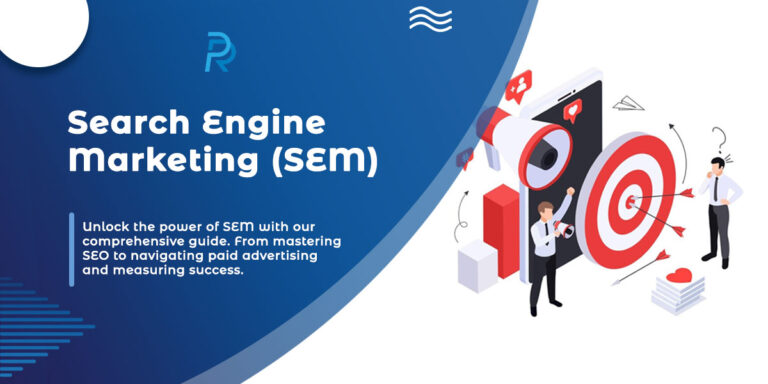
The partnership between artificial intelligence (AI) and human thinking is becoming more evident each day.
In this blog post, we analyze how AI influences reasoning and problem-solving skills by unveiling a transformative journey from traditional methods to a future where human intelligence is elevated by advanced AI technologies.
Let’s get started!
The Importance of Reasoning and Problem-Solving

In the journey of personal and professional growth, the foundational skills of reasoning and effective problem-solving stand as indispensable cornerstones. These cognitive abilities not only mold the contours of our decision-making processes but also lay the bedrock for innovation and expansion across diverse facets of life.
At the heart of our development, the art of reasoning becomes the compass guiding our choices. The ability to analyze situations, weigh options, and arrive at thoughtful decisions is not just a skill; it’s a fundamental element shaping the trajectory of our personal and professional landscapes.
Simultaneously, the prowess of effective problem-solving emerges as a linchpin in overcoming obstacles and propelling us forward. Navigating the intricate web of challenges, both big and small, requires a strategic approach to problem-solving, turning stumbling blocks into stepping stones.
How AI Can Help Us Improve Our Reasoning and Problem-Solving Skills

To start the journey of cognitive enhancement, we turn to the revolutionary ally – artificial intelligence. Carefully created AI technologies offer a variety of tools to enhance and improve our thinking and problem-solving skills.
In the complex interplay of advanced analytics, large datasets, and adaptive machine learning, AI transforms and broadens our cognitive toolkit.
AI enhances decision-making by amplifying the crucial foundation of accurate data collection and processing. Its capabilities address the challenges posed by vast and varied data, making it an indispensable catalyst for businesses seeking a change in cognitive capabilities.
Think of AI platforms as cutting-edge classrooms for cognitive development, like accurate data for business success. They simulate real-world problem-solving, providing a risk-free space for skill refinement. This AI-driven learning accelerates critical thinking and decision-making.
The Benefits of AI-assisted Reasoning and Problem-Solving

The integration of artificial intelligence (AI) marks a groundbreaking shift in the way cognitive processes operate, mirroring the transformative impact that facilitates a seamless experience and makes human lives more manageable.
Much like the massive structure of supercomputers forming the backbone of AI, the integration of this technology reshapes our approach to problem-solving and decision-making.
Efficiency Redefined:
- AI becomes the driving force, redefining efficiency in cognitive processes.
- AI supercomputers seamlessly combine machine abilities by going beyond traditional limits.
Precision in Action:
- The boundaries of precision are pushed as AI facilitates operations with unparalleled accuracy.
- This vast network of interconnected supercomputers enables machines to perform tasks with precision once exclusive to human capabilities.
Innovative Problem-Solving:
- AI’s integration sparks innovation in problem-solving methodologies.
- The linked AI supercomputers create a platform for innovative approaches by pushing the boundaries of what can be achieved in tackling complex challenges.
How AI is Transforming Reasoning and Problem-Solving

AI’s transformative impact is vividly seen as it reshapes traditional reasoning and problem-solving approaches. Decision-making becomes more streamlined, and the unprecedented speed of solution generation emerges.
AI’s proficiency in analyzing extensive datasets not only accelerates problem-solving but also unlocks a depth of understanding previously unattainable through conventional methods. This revolutionary process, empowered by AI, transcends traditional barriers, propelling cognitive processing to new heights.
The Future of AI-assisted Reasoning and Problem-Solving

Gazing into the future, the anticipated strides in AI technology promise excitement and potential. Emerging trends, including explainable AI and collaborative AI-human systems, are pivotal in unlocking fresh dimensions of reasoning and problem-solving. The infusion of ethical considerations and responsible AI practices becomes the compass guiding the trajectory of this evolving relationship.
The Impact of AI on Reasoning and Problem-Solving

In the real world, numerous examples showcase AI’s transformative influence on reasoning and problem-solving. Whether in healthcare diagnostics or financial forecasting, AI applications have proven their capacity to revolutionize entire industries.
Success stories highlight the symbiotic interplay between human expertise and AI capabilities, emphasizing the potential for remarkable achievements that were once inconceivable.
How AI is Changing the Way We Solve Problems

AI is transforming problem-solving. When human intuition meets AI data analysis, it reshapes how we resolve issues. This collaboration between human creativity and AI precision is a powerful force driving innovation across different fields.
Example: In medical research, combining human insights with AI analysis has accelerated the discovery of potential drugs, showcasing how this collaboration can lead to groundbreaking innovations.
The Pros and Cons of AI-assisted Reasoning and Problem-Solving
Advantages of AI in Reasoning and Problem-Solving:
- Enhanced efficiency and accuracy.
- Streamlined decision-making processes.
- Access to innovative insights through vast data analysis.
Challenges to Consider:
- Risk of biases in AI algorithms.
- The temptation to over-rely on technology.
It’s essential to find a balance by making sure we use AI’s capabilities while still keeping human control.
The Ethical Considerations of AI-assisted Reasoning and Problem-Solving

When striving for better cognition, it’s crucial to approach AI with ethics in mind. Developers and users share the responsibility of upholding ethical AI practices.
Prioritizing transparency, accountability, and a strong commitment to fairness should be at the core of integrating AI into reasoning and problem-solving processes.
Frequently Asked Questions (FAQ)
Reasoning is the process of thinking, understanding, and making logical judgments to reach conclusions or solve problems.
Solving a puzzle or making a decision based on logical thinking is an example of reasoning.
The three skills of problem-solving are:
Analytical Skills: Breaking down a problem into smaller parts.
Critical Thinking: Evaluating information and making reasoned decisions.
Creativity: Generating innovative and effective solutions.
The four types of reasoning are deductive, inductive, abductive, and analogical reasoning.
Deductive Reasoning:
Meaning: Drawing specific conclusions from general principles.
Example: All humans are mortal. John is a human. Therefore, John is mortal.
Inductive Reasoning:
Meaning: Making generalizations based on specific observations.
Example: Every observed swan is white, so all swans must be white (generalizing from specific instances).
Abductive Reasoning:
Meaning: Inferring the best explanation for observed evidence.
Example: You find a wet umbrella and wet footprints at the door. The best explanation is that it’s raining outside.
Analogical Reasoning:
Meaning: Drawing conclusions by comparing similar situations.
Example: Just as a plant needs water to grow, a student needs information to learn.
Conclusion
Starting on the path to enhance human intelligence through AI is both dynamic and transformative. The combination of AI capabilities with human reasoning and problem-solving skills unlocks doors to unprecedented possibilities.
Navigating artificial intelligence requires thoughtful consideration of ethical aspects to ensure that the collaboration between AI and human intelligence is a force for positive change. This collaboration empowers us to address challenges and envision a future where our cognitive horizons expand through the synergy of artificial intelligence.
Paget P. Maanige
Paget Maanige is a full-time Blogger and Android Developer with a burning passion for technology. At PajeReviews.com, Paget provides expert guidance for selecting software tools to enhance online business ventures. With a deep understanding of software development, Paget offers valuable insights into product choices to help maximize your potential and propel your technology endeavors forward.


![Best 5 AI Blogs to Follow in 2023 for Beginners and Developers [Free AI Content]](https://pajereviews.com/wp-content/uploads/2023/11/Info-Design6-768x384.jpg)




Hmm it appears like your site ate my first comment (it
was extremely long) so I guess I’ll just sum it up what I submitted and say, I’m thoroughly enjoying your blog.
I too am an aspiring blog blogger but I’m still new
to the whole thing. Do you have any suggestions for novice blog writers?
I’d certainly appreciate it.
Hello. Am glad you are enjoying the blog. Sorry for the delayed response as well. First and foremost welcome to the wonderful world of blogging! It’s a fantastic way to share your passions and connect with a like-minded audience. Here are a few tips to help you get started:
Finding Your Focus:
Pick a niche: Don’t try to be everything to everyone. What are you passionate about? Cooking, travel, gaming? There’s a niche for almost anything! Focus on a topic you’ll enjoy writing about consistently.
Building Your Blog:
Content is king: Write engaging and informative posts that provide value to your readers. Offer fresh perspectives, helpful tips, or insightful analysis.
Write for your audience: Research who you’re trying to reach and tailor your content to their interests.
Find your voice: Let your personality shine through! Your unique perspective is what will keep readers coming back for more.
Optimizing for Success:
Post regularly: A consistent schedule keeps your audience engaged. Aim for a realistic pace you can maintain, whether it’s weekly, bi-weekly, or monthly.
SEO matters: Learn about search engine optimization (SEO) to help your blog rank higher in search results. This can attract new readers organically.
Promote, promote, promote! Share your blog on social media, engage with other bloggers in your niche, and explore online communities.
Most importantly, have fun! Blogging should be a rewarding experience. Don’t get discouraged if it takes time to build an audience. Keep learning, keep creating, and keep connecting with your readers.